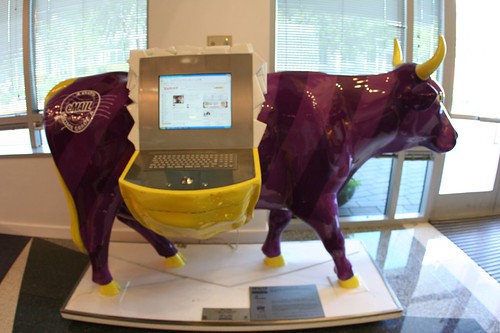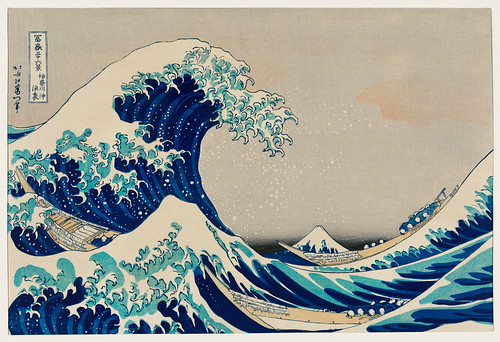Silicon Valley Bank (SVB)
Silicon Valley Bank funded this documentary about their history from their founding in 1983 to 2003. It’s now preserved by the Computer History Museum in Mountain View – one of the towns that make up Silicon Valley.
Business
POP MART dominates blind box toys market with co-branding | Daxue Consulting – interesting differentiation from Funko with a particular focus on young women and white collar workers. But I can’t see them appealing to the manly men that the Chinese government seeks to have reflected in youth culture
Why M&A is not a good path for Qualcomm | Digits to Dollars
China
Interesting use of AI by China’s government and academics: AI just predicted the price tag for Beijing’s South China Sea ambitions | South China Morning Post – apparently it was used to help design a high capacity dredger
China Cultivates Thousands of ‘Little Giants’ in Aerospace, Telecom to Outdo U.S. – WSJ
Why did Lego choose Vietnam, not China, to build first carbon-neutral factory? | South China Morning Post – Toy behemoth’s move reflects how like-minded multinational firms are diversifying supply chains away from what has been known for decades as the world’s factory. Lost investment dollars amid the US-China trade war and pandemic have sparked concerns within China
Economics
‘No other option’: Russia’s unequal economic marriage with China – Hong Kong Free Press HKFP – the Ukraine war has cemented Russia as China’s little brother rather than peer. Add to that China’s nationalists still smarting from losing Vladivostok to the Russian empire and one could see how Russia may have trouble on at least two fronts in the future
Finance
Longtime China investor Anatole to open ‘outpost’ in Singapore | Financial Times – it makes sense that they would follow the expansion of the global supply chain, but doesn’t reflect long term confidence in China’s dual circulation model
Bloomberg have done a programme explaining about what happened with Silicon Valley Bank and how it went under so quickly. Silicon Valley Bank had problems due to raising interest rates, issues with their risk management and an abnormally high amount of customers withdrawing funds. However there was also an issue about the way Silicon Valley Bank communicated with the market, which in turn created a crisis in depositor confidence.
Health
Alphabet’s keynote and plans for the health industries. Usual nod to privacy (hahahaha), cloud computing, consumer devices and AI.
Hong Kong
Hong Kong bans rapper who joked about hurting the feelings of the Chinese people — Radio Free Asia – This makes it more likely that artists … will express their loyalty to Xi Jinping, if they know what’s good for them
Korea
Luxury
Chinese tourists unwilling to pay extra for sustainable travel options even as concern about climate change on the rise, McKinsey and Trip.com report says | South China Morning Post – Chinese travellers are increasingly concerned about climate change and are aware of their environmental footprint, but are still not ready to pay extra for sustainable travel, according to a recent report by consulting firm McKinsey & Company and Chinese travel services provider Trip.com Group. Data from McKinsey, which surveyed a total of 5,457 respondents from 13 countries including China, the United States, India and Saudi Arabia, showed that more than 60 per cent of Chinese travellers were worried about climate change and believed that commercial aviation should become carbon neutral in the future, putting China near the top among the countries surveyed. A separate survey conducted by Trip.com last year showed that almost 85 per cent of Chinese travellers rated sustainable travel as important or very important. However, compared to travellers from other countries, Chinese tourists are reluctant to pay a premium for sustainable travel. Only 20 per cent of surveyed Chinese tourists said they would pay 2 per cent extra for carbon-neutral airline tickets, ranking near the bottom among the countries surveyed – well what would you expect when you have been repeatedly told by your government and media that the west and the United States is to blame for it all anyway? Secondly, civil society like Greenpeace or the Sierra Club can’t operate in China which will also affect awareness
More on the serious issue of violent crime for luxury watches in London. I wrote recently about the ‘London Watch‘ where watch wearers have an empty wrist when going around central London. This is going to negatively impact everything from luxury sales to hospitality and tourism in the UK at a time when the economy can ill-afford to turn down business.
Media
Pornhub owner sold to Canadian private equity firm | Financial Times – I guess the financiers believe that the business has been largely de-risked by the prosecutions against MindGeek owners and clearing out of the platform
Online
Deepfake ‘news’ videos ramp up misinformation in Venezuela | Financial Times – it sounds like something from a thriller, but its more insidious and banal all at the same time
Security
You Should Really Think About Blurring Your Home on Google Maps – CNET – handy life hack from CNET
Technology
The Man Who Made Xilinx | Electronics Weekle – interesting profile of Xilinx co-founder Bernie Vondersmitt. I have been reading Stripe Press’ republication of the 1985 book The Big Score by Michael Malone, so this article felt particularly apropos. More on The Big Score shortly
Telecoms
Huawei has replaced thousands of U.S.-banned parts in its products, founder says | Reuters – Ren Zhengfei said Huawei had over the past three years replaced the 13,000 components with domestic Chinese substitutes and had redesigned 4,000 circuit boards for its products.
Musk brought internet to Brazil’s Amazon. Criminals love it. | AP News




